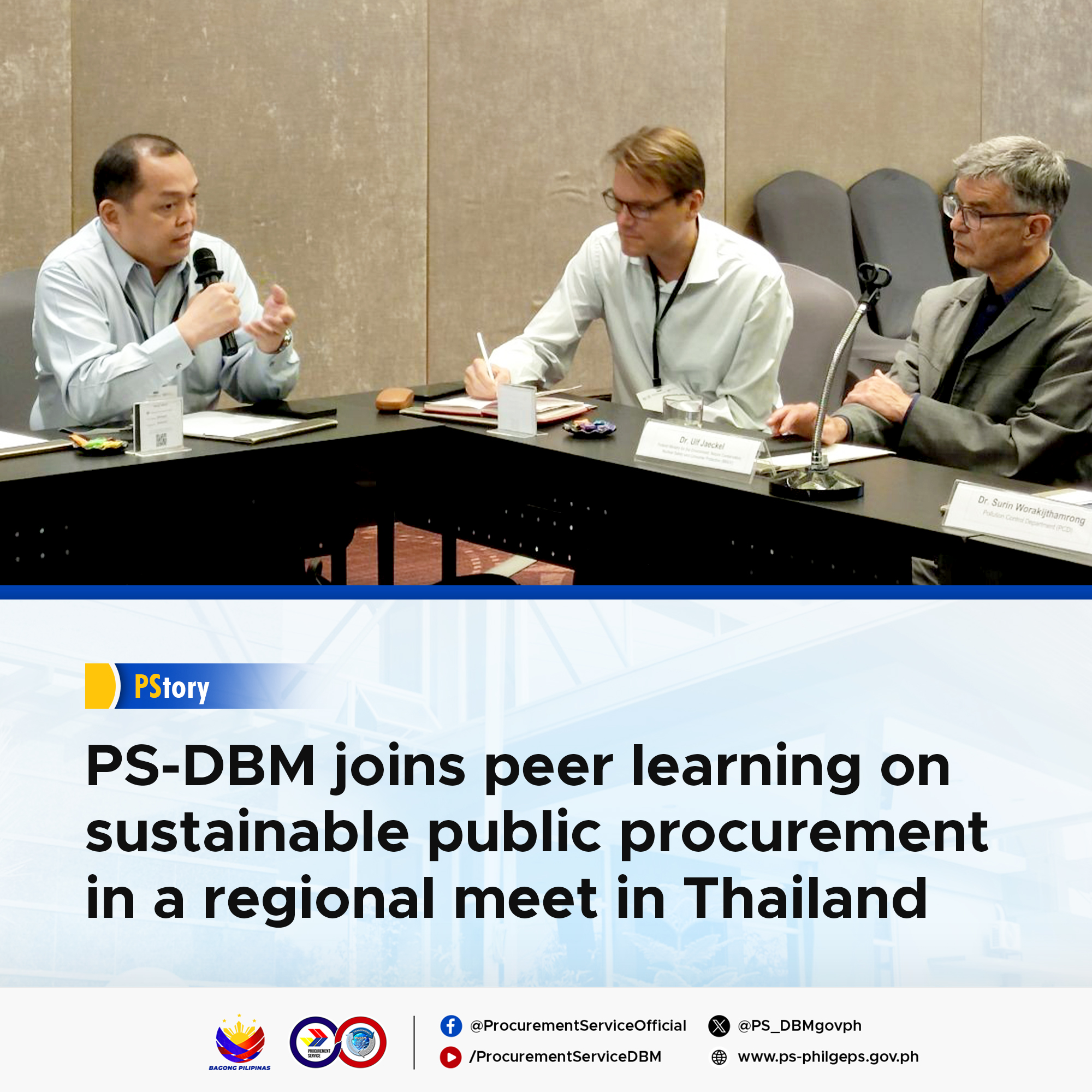
As one of the champions in implementing Green/Sustainable Public Procurement (GPP/SPP) in the Philippines, Procurement Service - Department of Budget and Management (PS-DBM) Executive Director (ED) Dennis S. Santiago discussed PS- DBM's approach and progress towards GPP/SPP in a regional peer learning with representatives from Indonesia, Malaysia, and Thailand, held from April 22 to 23, 2024, in Bangkok, Thailand.
In his discussion, moderated by Mr. Kai Hoffman of the German Corporation for International Cooperation (GIZ), ED Santiago touched on essential policies, measures, and tools for integrating SPP into the Philippine procurement process. This is relevant in connection with the ongoing efforts to amend the country’s procurement law, which shall introduce the concept of “most economically advantageous and responsive bid (MEARB)” to include SPP considerations for the “quality aspect” of the project or the items to bid.
ED Santiago also shared other important initiatives of PS-DBM under the GPP Roadmap. These include the integration of green specifications and parameters in its list of Common-use Supplies and Equipment (CSE); conduct of market research to identify sustainable products available in the market; creation of a GPP Committee within PS-DBM; and cultivating partnerships and promoting collaborations with experts and relevant organizations such as GIZ, among others.

A significant portion of the discussion revolved around making SPP mandatory. This covered the challenges and potential solutions that may be encountered in its implementation. In relation, the role of capacity building as well as the strategies for collaboration with other stakeholders were emphasized.
Following introduction of other concepts, measures, and international practices to drive mandatory SPP, ED Santiago highlighted the modernization of PS-DBM's Philippine Government Electronic Procurement System (PhilGEPS) which serves as the central portal for public procurement information in the country.
“PhilGEPS may enhance its functionality to support the implementation of SPP. This includes incorporating features that allow agencies to search for and prioritize sustainable procurement, providing guidance on including sustainability criteria in procurement postings, and offering resources for evaluating suppliers’ sustainability performance,” ED Santiago said.
Other activities were conducted such as group workshops and breakout sessions to determine the next steps and establish an outlook for the future.

Sharing the stage with ED Santiago to represent the Philippines was Government Procurement Policy Board - Technical Support Office ED Rowena Candice Ruiz who provided insights on the institutionalization of SPP practices. Joining him from PS-DBM were James Gabilo of the Procurement Group and El Jon Bunao of the Operations Group.
PS-DBM, by taking part in this event, responds to the call to action for a region-wide cooperation and decision making geared towards building a sustainable future for all through public procurement.
